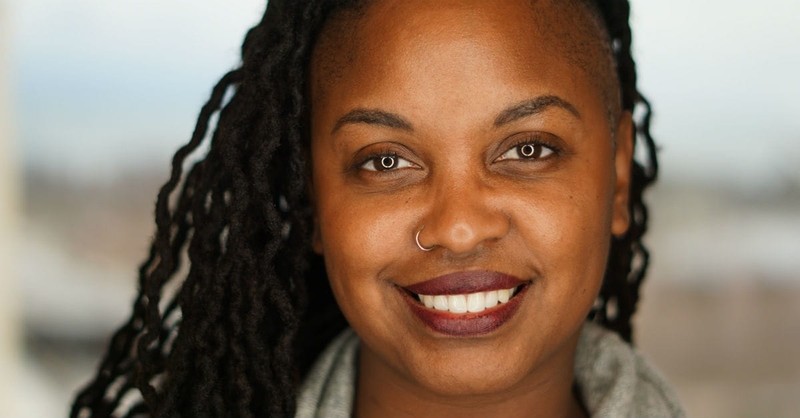
Photo Credit: Unsplash
Recognizing and combating my insecurities is a repetitive pattern in my life. Over the past few years, I have learned to combat my insecurities as they peak in my mind. But to say I've overcome them is untrue. Overcoming insecurities makes it sound like I no longer struggle and it was a one-time victorious event. That's not the case at all, however, insecurity no longer paralyzes me from doing God's will. Insecurity no longer makes me believe that God can’t use me. And it doesn’t pressure me into doing things out of fear of what others may think of me.
Although I still struggle with insecurity, I have learned to identify it and move away from it more quickly. Here are some ways I've learned to do this:

First, where do insecurities come from?
I've found that my insecurities come from two places: comparing myself to others and caring more about what people think of me than what God thinks of me.
Nothing good comes from comparing myself to others. When I do this, I become jealous. I begin wanting what other people have whether it be their calling, job, ministry, circumstances, marriage, children, or possessions. I also feel insecure about what God has given me. I even start believing that God sees something negative in me, and that's why He doesn’t give me what other people have; or I believe I am being punished.
Analyzing what other people think of me instead of caring about what God thinks of me also makes me insecure. Proverbs 29:25 says that "the fear of man lays a snare." The snare is insecurity. Dwelling on what other people think of me is exhausting. I begin thinking that something's wrong with me, and I speak and act out based on their anticipated response.
Photo Credit: Thinkstock

Be conscious of your catalysts.
I am conscious of jealousy and fear of man taking over my thoughts. Recognizing that these feelings are the catalysts for my insecurity, I'm able to remind myself of truths from the Bible to counteract those thoughts.
Photo Credit: Unsplash

Remember: You are fearfully and wonderfully made.
I also remind myself that I am, in fact, "fearfully and wonderfully made," (Psalm 139:14). This verse has almost become a cliché in recent years. You can find it on printed art for baby nurseries and little girls' rooms. However, it is a truth that we often forget, especially in the age of social media.
Photo Credit: Unsplash

Know your personality.
A few years ago I came across a description of my Myers Briggs personality type. Personality profiles, spiritual gifts quizzes, and temperament types have always interested me, but when I read this in-depth description of my personality type, I had an "Ah, ha" moment.
I read the description to my husband, and both of our mouths dropped open. It described me perfectly. My personality type, INFJ, is one of the rarest types with only about 1-2% of people having it. For most of my life, I felt misunderstood and "different," like no one truly understood me. This led to so much insecurity in my life, however, reading this description helped me understand why I felt that way.
Photo Credit: Unsplash

Your personality doesn't justify sin.
My personality type does not give me a pass for sin or a way to justify unhealthy patterns. However, it has helped reiterate the truth that I am, just like everyone else, fearfully and wonderfully made in a deep way that I will not fully comprehend.
Now that I understand more about how God made me, when I compare myself to others or try to get others' approval, I remind myself that I am not that other person. God made me with different strengths and weaknesses that He wants me to use uniquely for His glory.
Photo Credit: Thinkstock

Know your lane.
I blame social media for causing us to forget our lane nowadays. The phrase "forget our lane" means forgetting what we are specifically called to do in our individual lives. As a culture, we have become more socially active, standing up for justice and the oppressed. This is wonderful, and we the church should be doing this.
However, what I struggle with is wanting to do it all or feeling like I should do it all. This is a result of insecurity and not knowing my lane - what God has called me to. And social media is often the perpetrator.
Photo Credit: Thinkstock

You're called to something, not everything.
I see my peers online starting nonprofits, writing books, adopting children, going on mission trips, and the list goes on. A knot forming in my gut, and insecure thoughts take over. "Why am I not doing all of that? Maybe I should be doing more? But I feel like I have no margin as it is! What's wrong with me?"
Knowing and remembering my lane helps me combat these insecure feelings that I'm not doing enough. God calls all of us to do something, but He doesn't call us to do everything. In 1 Corinthians 12 we learn that the body of Christ has different roles, all of which are important, but each are unique. These roles are unique to personality and circumstances, and we can't try to take on other people's roles. We'll become exhausted, burned out, and insecure. We have to know our lane.
Photo Credit: Thinkstock

Struggle with insecurity before it becomes destructive.
I believe insecurity is something we will all struggle with from time to time. What makes it destructive is when it becomes so prevalent that we are paralyzed from doing God's will, we believe God can't use us, or we get involved where God has not called us in order to please man. To overcome insecurity we must be conscious of what promotes those feelings, remember we are fearfully and wonderfully made, and know our lane.
Brenda Rodgers considers herself a “recovering single” after years as a single woman chasing after marriage instead of chasing after Jesus. Now her passion is to mentor young women to live purposefully and grow in their relationship with God and others. Brenda has been married for five years to a heart transplant hero and is the mom of a toddler girl miracle. She is also the author of the eBook Fall for Him: 25 Challenges from a Recovering Single. You can also read more on Brenda’s blog, www.TripleBraidedLife.com and follow her on Twitter and Facebook.
Photo Credit: Unsplash
Originally published Friday, 09 March 2018.








